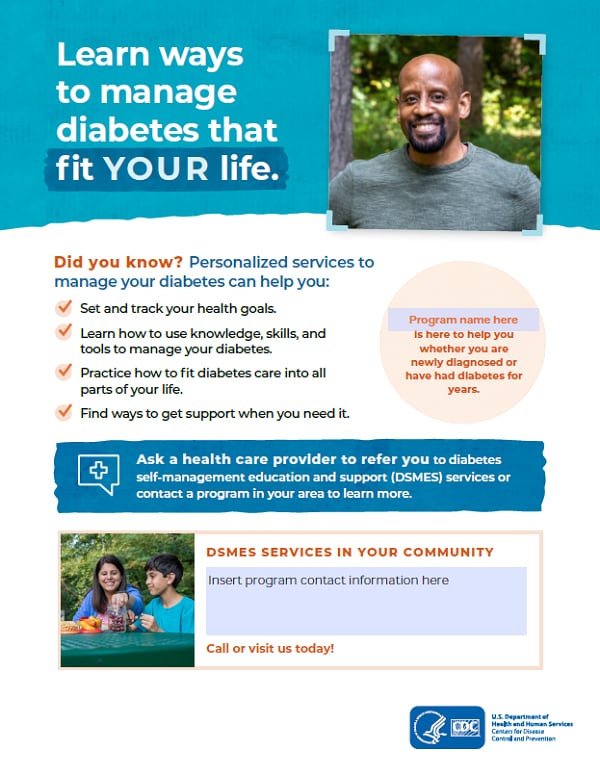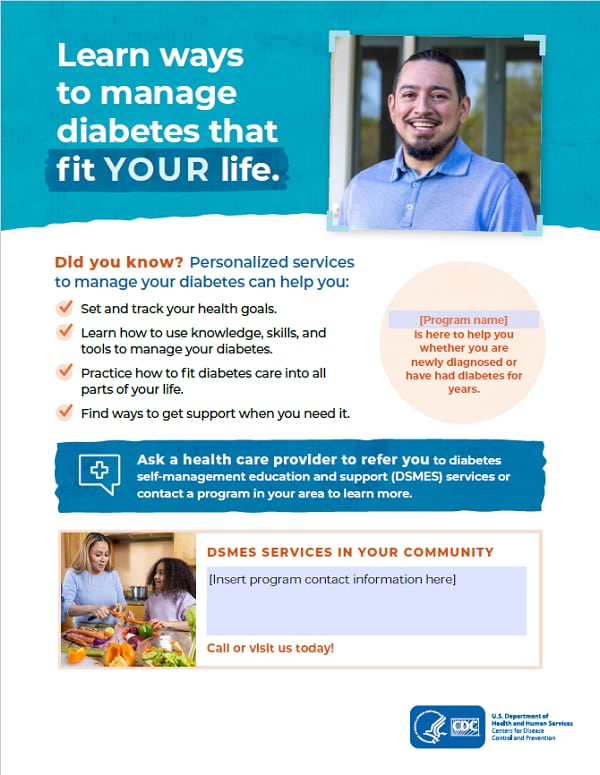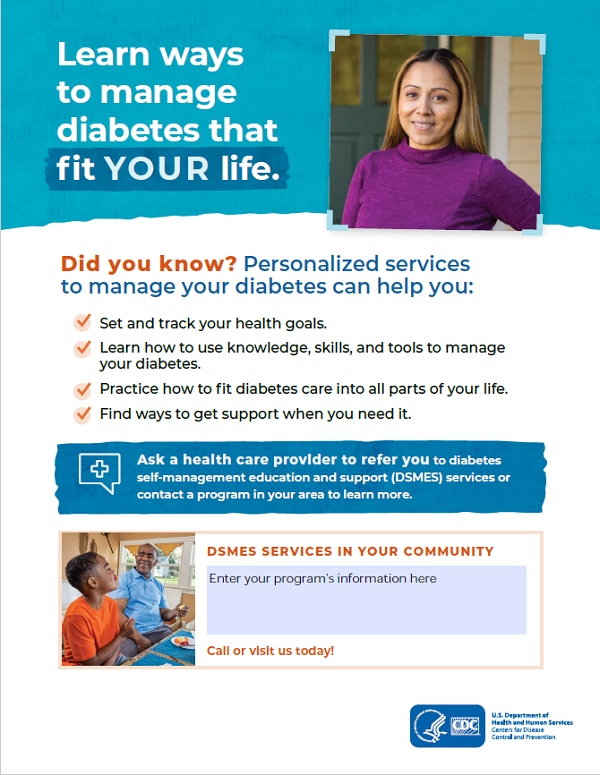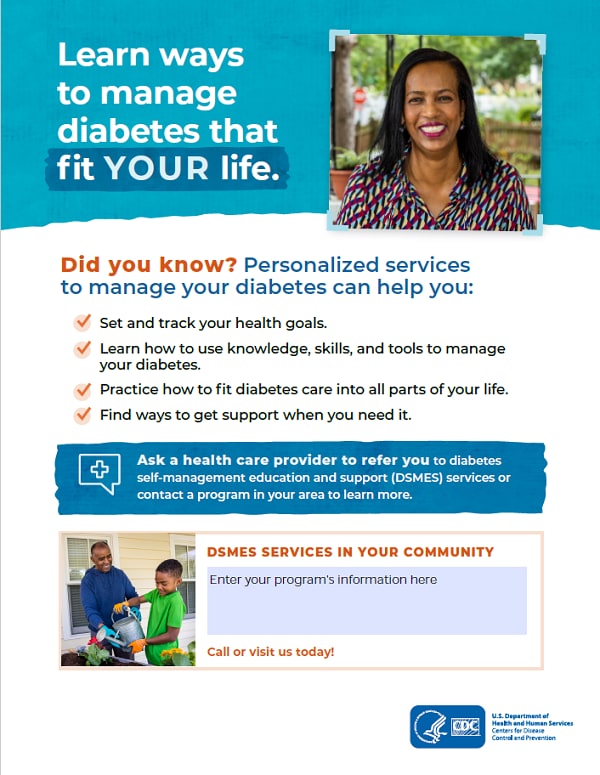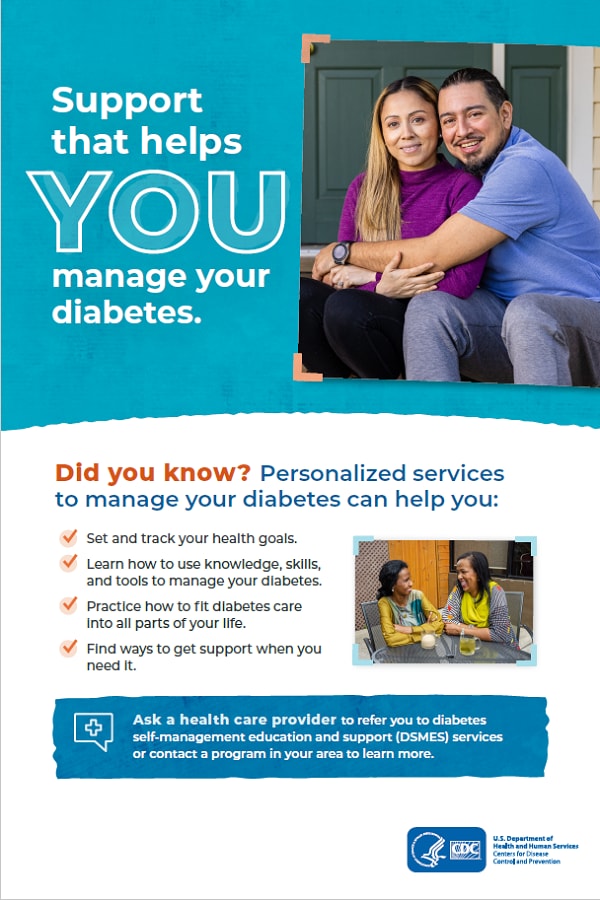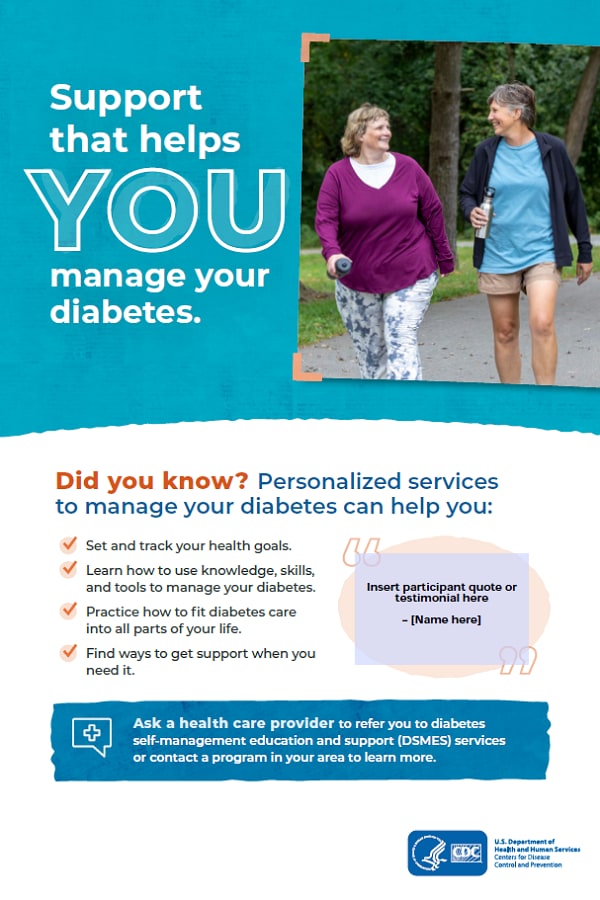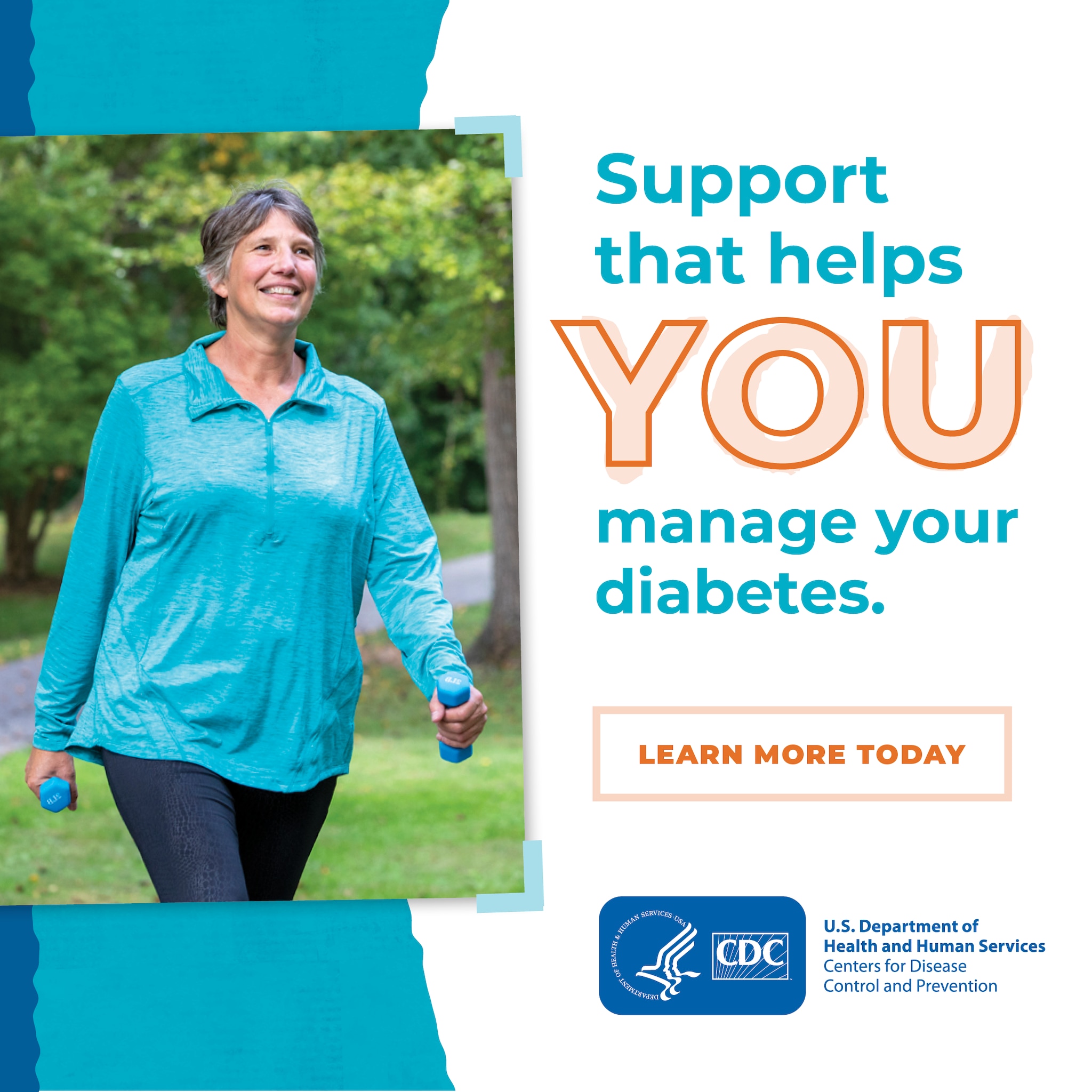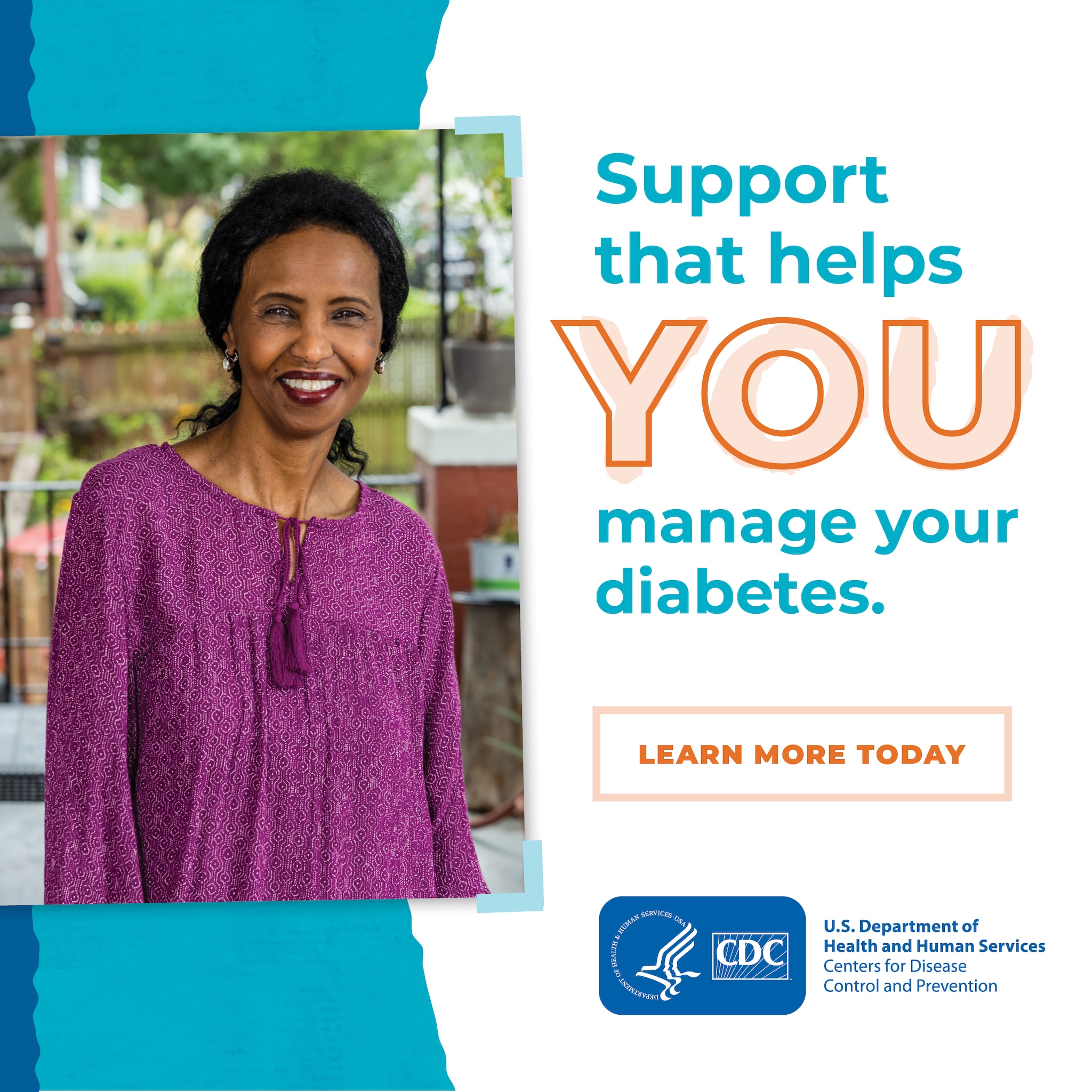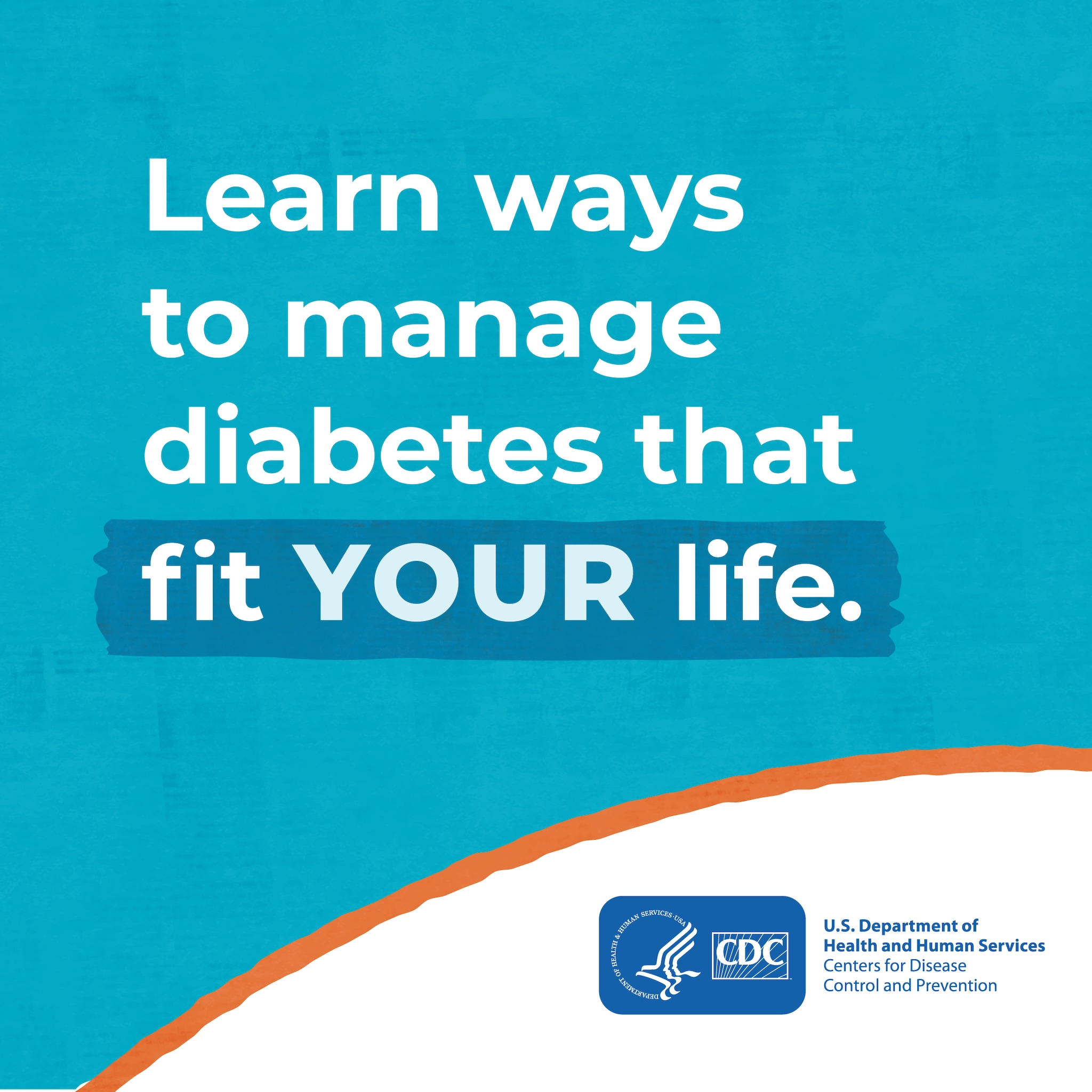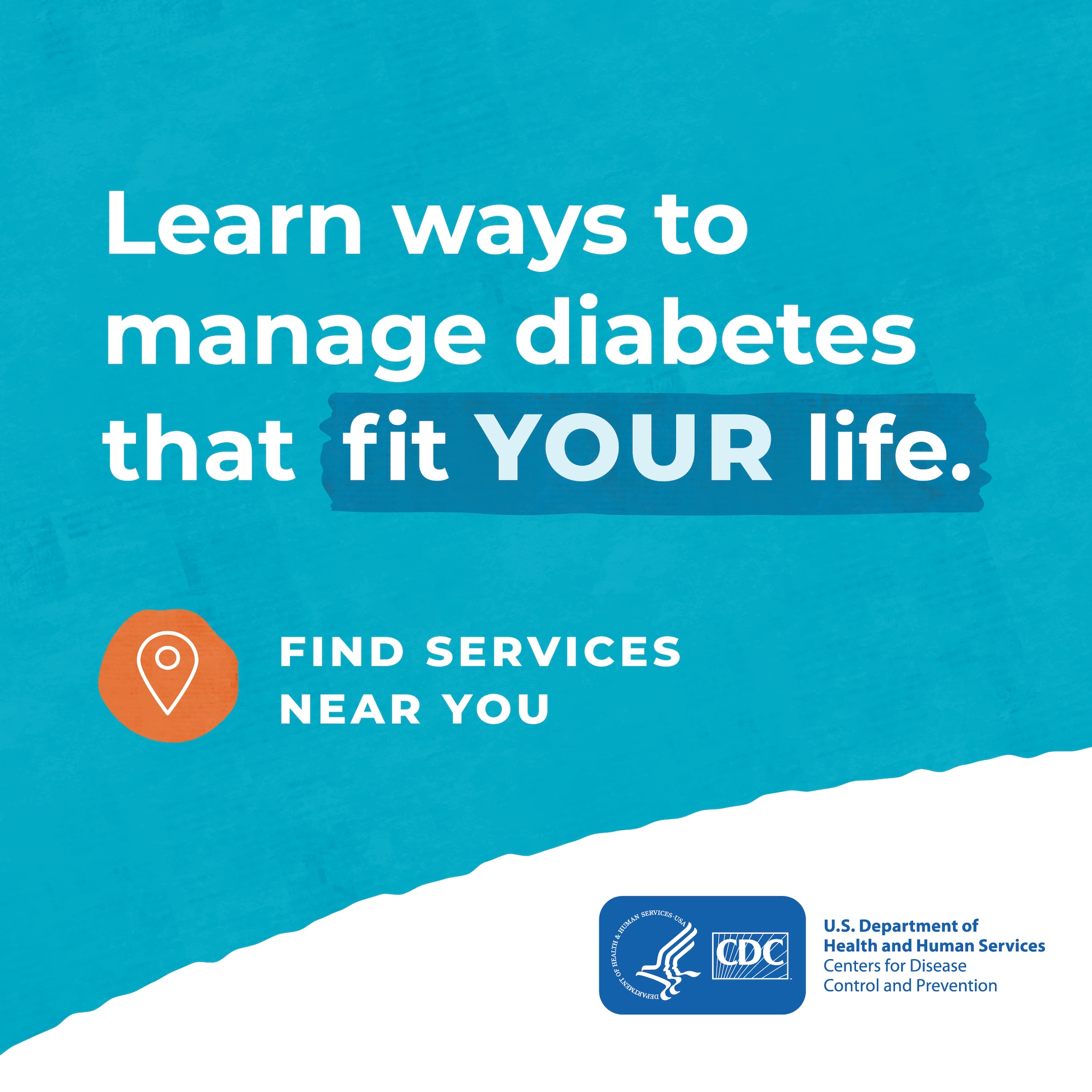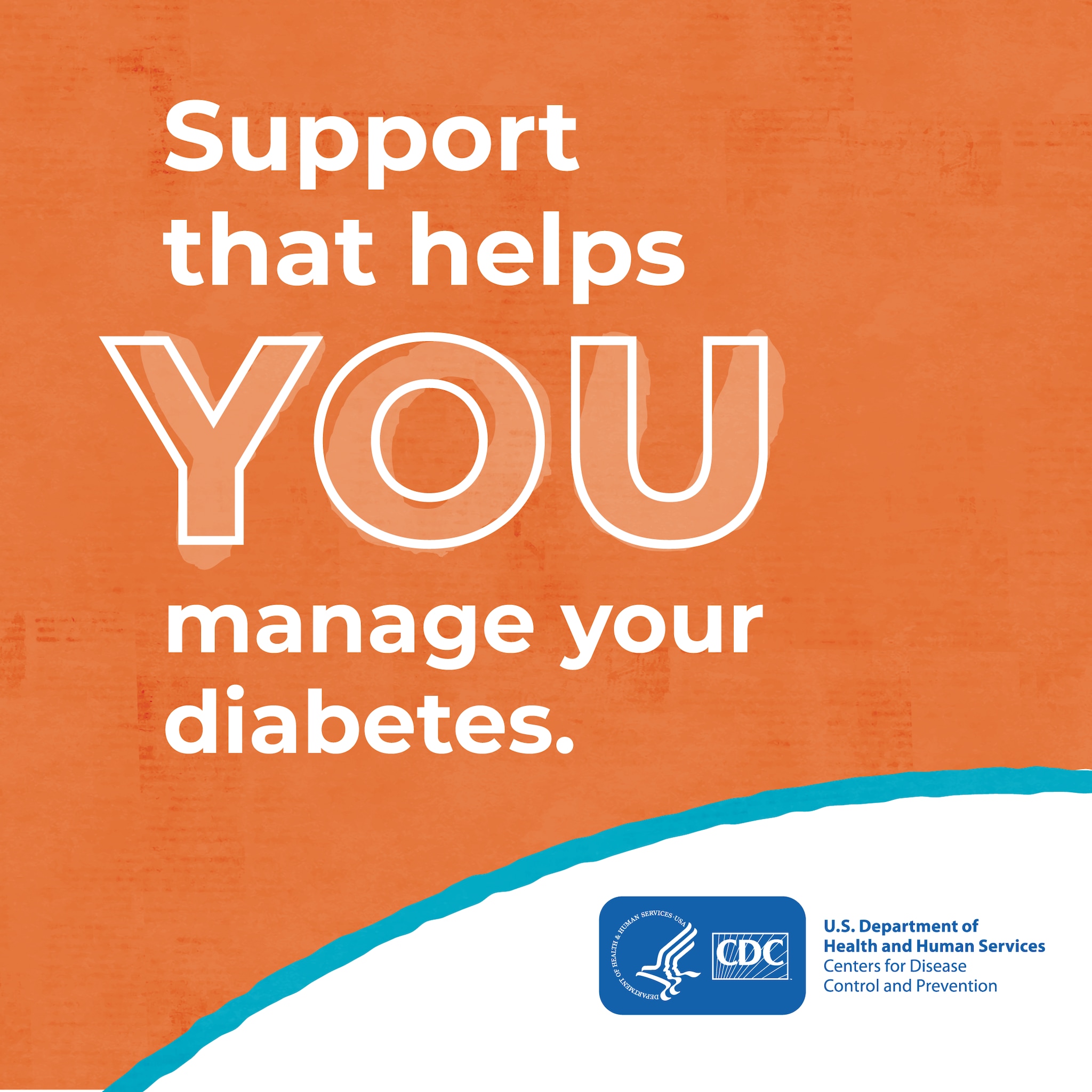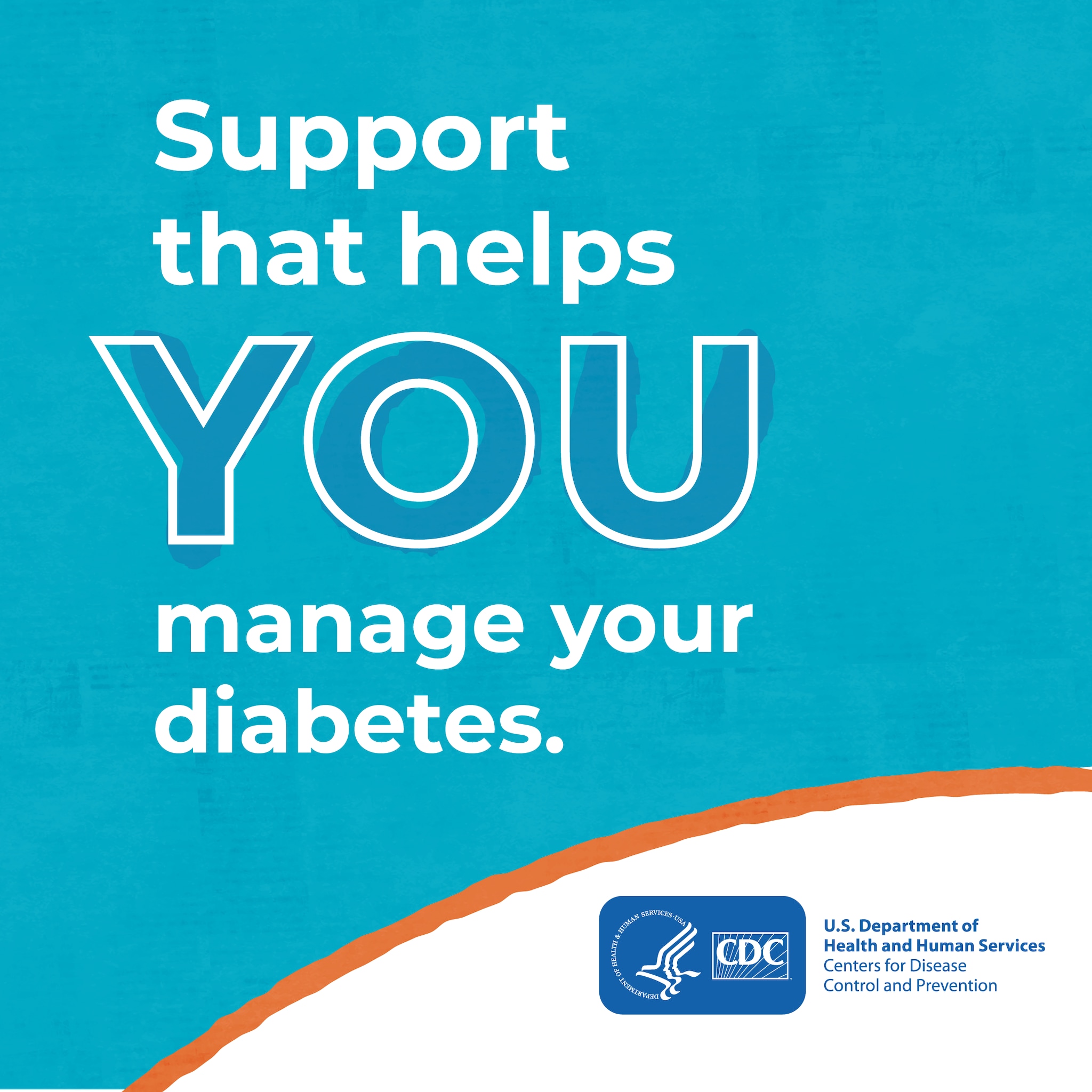Marketing and Promotion
DSMES Promotion Playbook

It’s Time to Change the Way We Talk About DSMES Services!
How would you describe diabetes self-management education and support (DSMES) services to a neighbor? Would they understand and want to learn more for themselves and their loved ones?
The DSMES Promotion Playbook can help CDC and its partners promote DSMES services with one voice. Consistent messaging can help create an identity for DSMES so that people with diabetes are more aware of it, reach out to learn more, and ask a health care provider for a referral.
The DSMES Promotion Playbook was developed through a collaborative effort of CDC and national partners, with insight from people with diabetes, diabetes care and education specialists, referring health care providers, state health departments, and accredited and recognized programs delivering DSMES services. Learn more about the DSMES Promotion Playbook in the Frequently Asked Questions. You can also contact AskDSMESPlaybook@cdc.gov to learn more.
DSMES Promotion Playbook Materials
Use With People With Diabetes
Use With Health Care Providers
Who Should Use the DSMES Promotion Playbook?
- Accredited and recognized programs delivering DSMES services
- American Diabetes Association (ADA): Education Recognition Program (ERP)
- Association of Diabetes Care & Education Specialists (ADCES): Diabetes Education Accreditation Program (DEAP)
- Those who are working with accredited and recognized programs, such as
- Diabetes care and education specialists
- Health care providers
- State and local health departments
- Community-based organizations
How the DSMES Promotion Playbook Describes DSMES Services
A key component of this work was the creation of a plain language description of DSMES services to help promote concise and consistent communication. This description can be used to communicate about DSMES services. It has been tailored for people with diabetes, health care providers, and partners.
Description for people with diabetes:
Whether you are new to having diabetes or have had it for years, when you receive diabetes self-management education and support (DSMES) services, you will:
- Work with a diabetes care and education specialist to set and track goals.
- Learn how to use knowledge, skills, and tools to build confidence and emotional strength to manage diabetes.
- Practice how to fit diabetes care into all parts of your daily routine—like when and what you eat and how you solve problems.
- Find ways to get support (in person and online) from your family, friends, community, and health care team.
Ask a health care provider or find a local program through the Association of Diabetes Care & Education Specialists or the American Diabetes Association.
Description for health care providers and partners:
Diabetes self-management education and support (DSMES) services help people with diabetes manage their diabetes in ways that fit their lifestyle. Participants will:
- Work with a diabetes care and education specialist to set and track goals.
- Learn how to use knowledge, skills, and tools to build confidence and emotional strength to manage diabetes.
- Practice how to fit diabetes care into all parts of their daily routine—like when and what they eat and how they solve problems.
- Find ways to get support (in person and online) from family, friends, the community, and their health care team.
People with diabetes can ask a health care provider or find a local program through the Association of Diabetes Care & Education Specialists or the American Diabetes Association.
How to Use the DSMES Promotion Playbook Materials
Communicating clearly and consistently about DSMES services makes it easier for other organizations to amplify your outreach efforts. Customize the outreach materials in the DSMES Promotion Playbook with your local program information.
Here are a few tips:
- A free PDF reader can be used to fill in the areas of the materials that allow edits. This includes changing the photos. If you need to add text in other areas, you may need to purchase software that allows you to edit or add to PDFs.
- Each material has a recommended printing size (see Printer Guide below). However, all materials can be printed at different sizes by changing printer settings to the paper size you have. If original design files are needed for professional designer or printer services, please submit a request.
Printer Guide
Note: PDFs are not set up for full-bleed printing (printing to the edge of the paper).
| Flyer | Size: 8½ x 11 inches
Color or black and white |
|---|---|
| Postcards | Size: 9 x 6 inches (2 cards per printout) Color or black and white |
| Poster | Size: 12 x 18 inches Color or black and white |
Questions on how to customize and print the materials can be sent to AskDSMESPlaybook@cdc.gov.
